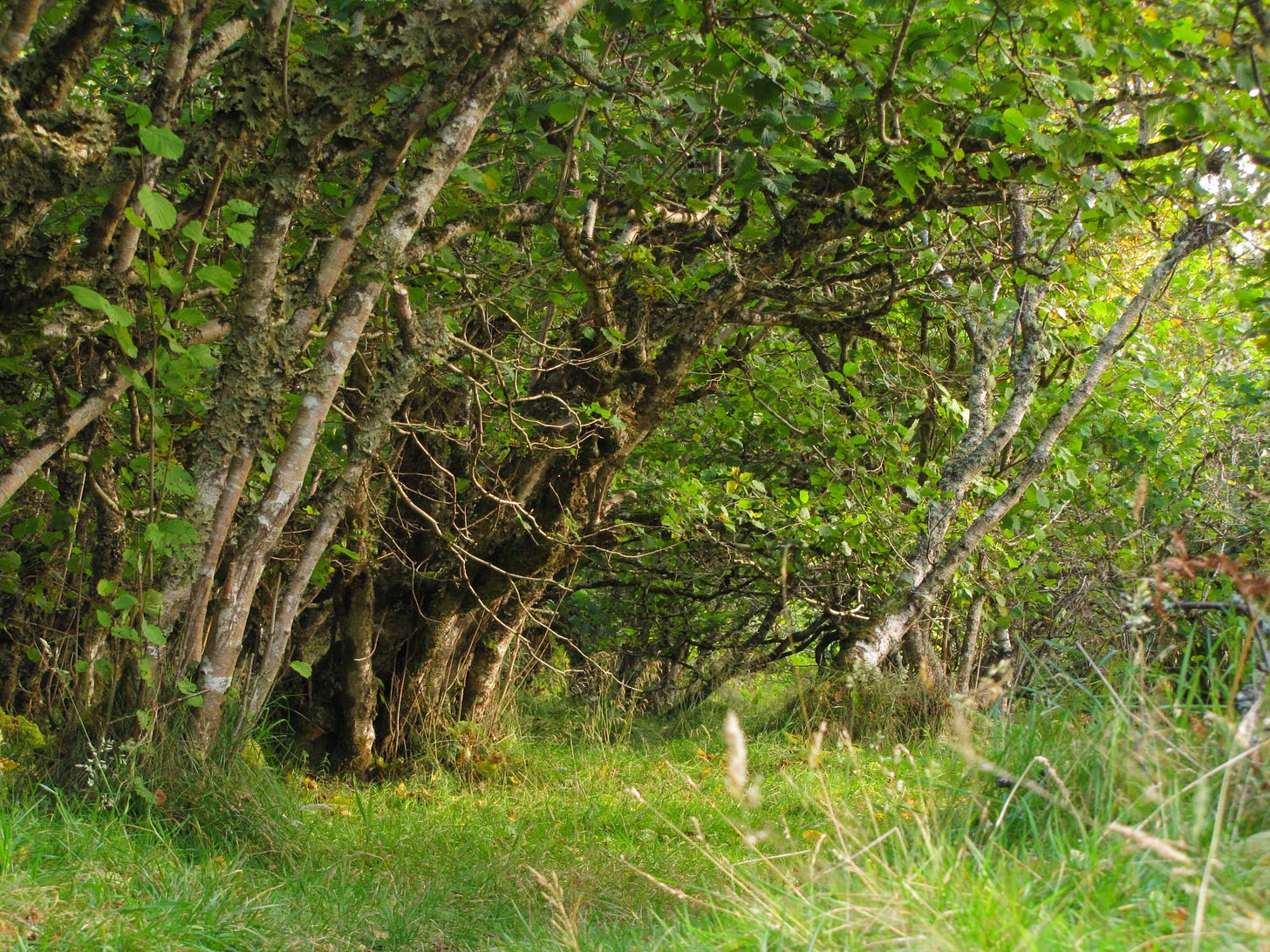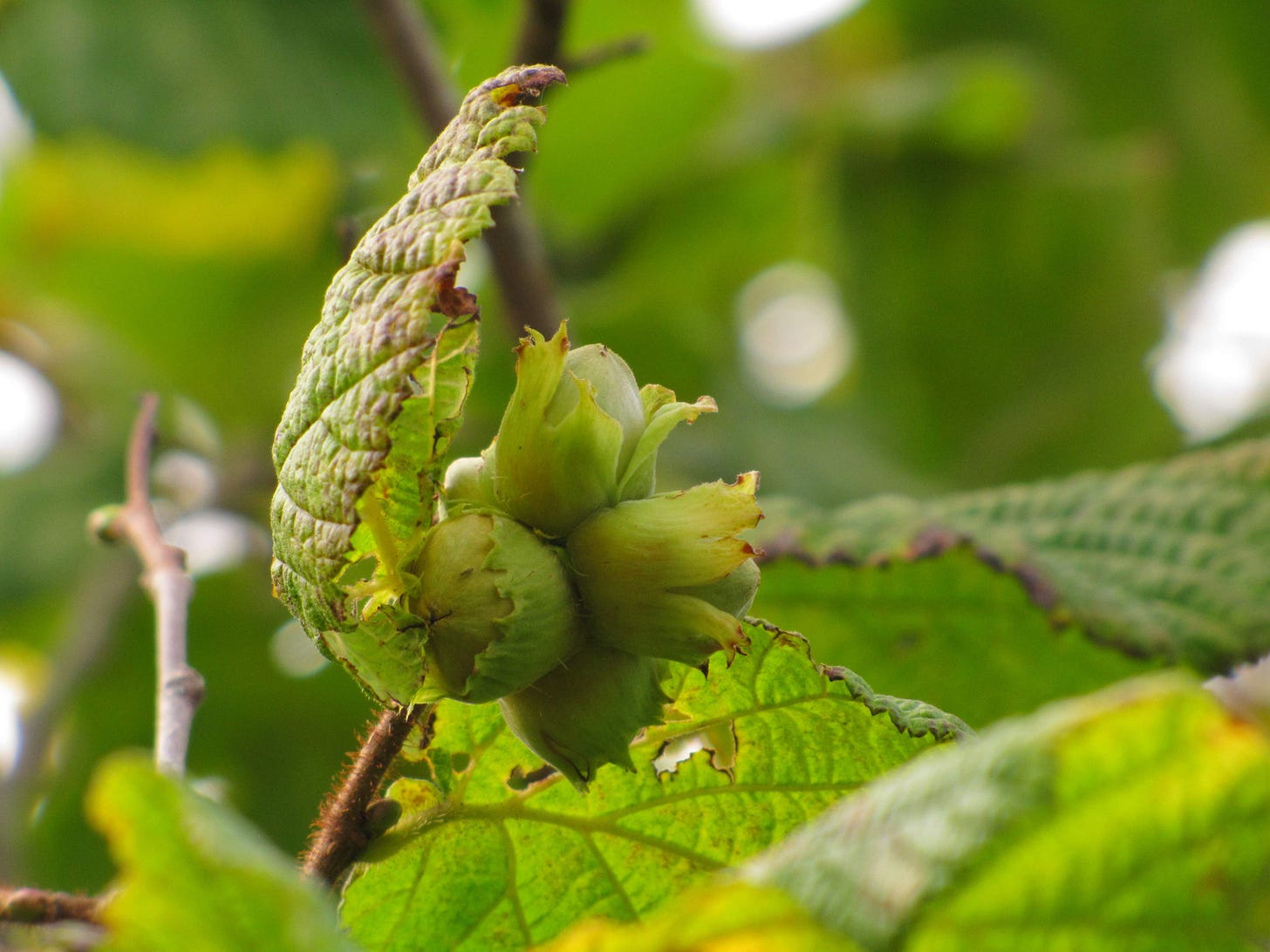In the previous piece on this topic, I talked about modern and ancestral perspectives on respecting the nature. I gave a few personal thoughts on why rules and regulations might not always work as they were originally planned, and offered an example of how to potentially circumvent this, to give nature a helping hand. I also stressed that this example—of collecting local, native species seeds and sowing them nearby—might be illegal where you live.
Here, we shall look further into ways to respect nature—which might not exactly follow modern tenets of environmentalism, but which could make a bigger difference to your local patch than ‘leave no trace’.
I shall list a few ideas for a set of personal rules (although rules is not the best word, perhaps beliefs, or credo, may be better?), things you might wish to add to your walk or outdoor routines, some of which you are likely to do already. As you read, have a think if there are others you would add.
Never leave litter. Ever. And this includes toilet paper. If you need to use it, carry a spare plastic bag and seal it in there when you are done, taking it home to dispose of. Pieces of toilet paper do not decay as quickly as people seem to believe, whether they are left free to blow across the landscape, buried or, and this is my least favourite, neatly placed beneath rocks. Just don’t do that, please.
Collect litter. Okay, so you might not want to collect those bits of toilet paper, but if you see plastic, pick it up. Some companies actually sell specific products for carrying rubbish out of natural places, such as the Dirt Bag from Helikon Tex, but a thick plastic bag works well or, failing that, just stuff the plastic trash in your pocket until you reach a recycle point. I do. When I used to walk the family dog, Orlando the Sprocker spaniel, he would almost always bring back a plastic bottle in his mouth, bred instinct to carry, and a sad indictment on just how much trash there is out there. Leave a place looking better than you found it—certainly leave no litter of your own, but also leave no trace of the litter of others, if you can.
Never collect anything natural unless there is enough of it to do so. Some useful plants can be rare in certain places, and the last thing we want to do is make them rarer. If you know there is enough of a species to warrant collection and use, perhaps a seasonal glut, then that is a different matter (—as far as I am concerned, again, check your local laws).
Know your area before collecting, understand the natural relationships. As I mentioned, do not collect anything unless there is enough of it but knowing your area goes further—you need to know the ins and the outs of the nature: what lives there, what uses a plant or resource, whether a species is protected by bylaws, or if someone else has a claim. For a simple example, let’s talk about driftwood. In the northern isles of Scotland, driftwood is a valuable resource—there are not that many trees. After every storm, locals will go and and check what the sea has gifted, gathering it and hauling up the beach beyond the high tide line. There, they will leave it to dry out, then return to collect it at a later date. Or collect it if it is still there—too often, these days, tourists don’t know about this effort in collection and just see a neat pile of driftwood they can burn on the beach for an evening by a fire, listening to the ocean and watching the sun set. I absolutely understand the urge to do this, to sit by the water and watch it and the sky is a wonderful thing but, to use someone else’s supply of driftwood, is not. Sometimes, it can be hard to find if there is a claim on a resource, but a little research goes a long way.



